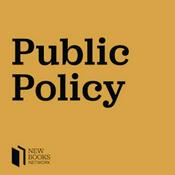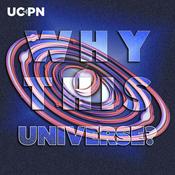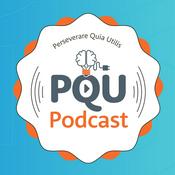2075 episódios
Wendy Wolford, "The Plantation Ideal: Landscapes of Extraction in Mozambique" (U California Press, 2025)
21/2/2026 | 1h 6minPlantations have been the privileged tool of colonial rule and extraction in Mozambique for more than one hundred years despite never having delivered sustained economic or social benefits. Drawing on extensive archival and qualitative contemporary research, The Plantation Ideal: Landscapes of Extraction in Mozambique (U California Press, 2025) by Dr. Wendy Wolford offers new insights into plantation economies, histories, and landscapes. Dr. Wolford tells the story of how the largely failed pursuit of plantation production has shaped agricultural science, government rule, life on the land, and community development in Mozambique from the harshest years of Portuguese colonization to the present.
This interview was conducted by Dr. Miranda Melcher whose book focuses on post-conflict military integration, understanding treaty negotiation and implementation in civil war contexts, with qualitative analysis of the Angolan and Mozambican civil wars. You can find Miranda’s interviews on New Books with Miranda Melcher, wherever you get your podcasts.
Learn more about your ad choices. Visit megaphone.fm/adchoices
Support our show by becoming a premium member! https://newbooksnetwork.supportingcast.fm/public-policyJoe Williams, "Inequality in the Digital Economy: The Case for a Universal Basic Income" (Palgrave Macmillan, 2024)
21/2/2026 | 50minIn this episode, Joe Williams speaks with Andrew White about how the digital economy is reshaping inequality, work, and the social contract. Drawing on the themes of his book Inequality in the Digital Economy: The Case for a Universal Basic Income (Palgrave Macmillan, 2024), our conversation explores why technological progress has not translated into shared prosperity, how structural features of digital markets concentrate power and wealth, and what this means for the future of work and social policy. We discuss universal basic income as part of a broader attempt to rethink how societies provide security and dignity in an era of automation, and consider what a more sustainable and humane economic model might look like in practice.
Joe Williams website here
- Censorship and Sacralisation of Politics in the Portuguese Press during the Spanish Civil War- "Year X of the National Revolution" — Salazarist Palingenetic Myth in the Diário da Manhã
Learn more about your ad choices. Visit megaphone.fm/adchoices
Support our show by becoming a premium member! https://newbooksnetwork.supportingcast.fm/public-policyErick Guerra, "Overbuilt: The High Costs and Low Rewards of US Highway Construction" (Island Press, 2025)
20/2/2026 | 36minThe world’s largest public works investment visible from space, the Interstate Highway System and the hundreds of thousands of miles of supporting roadways, are frequently hailed as a marvel and triumph of engineering. President Eisenhower’s 1956 Interstate Highway Act is often praised as a model of successful bipartisanship.
Today, the extensive damage wreaked by the creation of the highway system and the ills of car dependency are more widely acknowledged. Congestion and traffic deaths remain endemic despite nearly three-quarters a century of public policies and trillions of dollars spent with a primary stated goal of reducing congestion and improving traffic safety. The financing, governance, and construction models established by the 1956 act continue to influence what gets built today.
In Overbuilt: The High Costs and Low Rewards of US Highway Construction (Island Press, 2025), transportation planning expert Dr. Erick Guerra describes how the US roadway system became overbuilt, how public policy continues to encourage overbuilding, what the scale and consequences of overbuilding are, and how we can rethink our approach to highway building in the US.
Guerra explains that the national propensity to build roadways is no longer official or intentional policy. Instead, overbuilding stems from the institutions, finance mechanisms, and evaluation metrics developed in the first half of the twentieth century. While more funds are set aside for transit, walking, biking, and beautification, the investment paradigm has not changed. Planners and engineers have not adjusted the tools they use to determine which roads should be built, rebuilt, or widened and why. The country has added more lanes of urban Interstate since declaring the Interstate system complete than prior to it.
Despite having too much roadway, the country is still operating in construction mode, using the same basic approach used to finance and build the interstate system quickly, Dr. Guerra states. The interstate was completed more than three decades ago. Overbuilt argues convincingly that it is time to move on.
This interview was conducted by Dr. Miranda Melcher whose book focuses on post-conflict military integration, understanding treaty negotiation and implementation in civil war contexts, with qualitative analysis of the Angolan and Mozambican civil wars. You can find Miranda’s interviews on New Books with Miranda Melcher, wherever you get your podcasts.
Learn more about your ad choices. Visit megaphone.fm/adchoices
Support our show by becoming a premium member! https://newbooksnetwork.supportingcast.fm/public-policyDavid Obst, "Saving Ourselves from Big Car" (Columbia Business School Publishing, 2025)
17/2/2026 | 1hStreetwise: Saving Ourselves from Big Car (Columbia Business School Publishing, 2025) exposes how “Big Car”―the complex of companies in the automobile, oil, insurance, media, and concrete industries that promote and entrench car dependence―has pursued profit at the expense of the common good. David Obst explores how Big Car gained almost immeasurable influence over our lives, weighing the benefits and the costs of reliance on private automobiles. He details how industry covered up the harms of lead additives, fought against seatbelts, and continues to fund climate-change denialism. Obst considers the future of mobility, surveying how cities―from Taipei to Tempe, Copenhagen to Chicago―are experimenting with forms of transportation that offer alternatives to the dominance of cars. This is a provocative and comprehensive book.
Learn more about your ad choices. Visit megaphone.fm/adchoices
Support our show by becoming a premium member! https://newbooksnetwork.supportingcast.fm/public-policyHanna Garth, "Food Justice Undone: Lessons for Building a Better Movement" (U California Press, 2026)
14/2/2026 | 46minFood justice activists have worked to increase access to healthy food in low-income communities of color across the United States. Yet despite their best intentions, they often perpetuate food access inequalities and racial stereotypes. Hanna Garth shows how the movement has been affected by misconceptions and assumptions about residents, as well as by unclear definitions of justice and what it means to be healthy. Focusing on broad structures and microlevel processes, Garth reveals how power dynamics shape social justice movements in particular ways.Drawing on twelve years of ethnographic research, Garth examines what motivates people from more affluent, majority-white areas of the city to intervene in South Central Los Angeles. She argues that the concepts of "food justice" and "healthy food" operate as racially coded language, reinforcing the idea that health problems in low-income Black and Brown communities can be solved through individual behavior rather than structural change. Food Justice Undone: Lessons for Building a Better Movement (U California Press, 2026) explores the stakes of social justice and the possibility of multiracial coalitions working toward a better future.
Hanna Garth is Assistant Professor of Anthropology at Princeton University, author of Food in Cuba: The Pursuit of a Decent Meal, and coeditor of Black Food Matters: Racial Justice in the Wake of Food Justice.
Reighan Gillam is Associate Professor in the Department of Latin American, Latino, and Caribbean Studies at Dartmouth College. Her research examines the ways in which Afro-Brazilian media producers foment anti-racist visual politics through their image creation. She is the author of Visualizing Black Lives: Ownership and Control in Afro-Brazilian Media (University of Illinois Press).
Learn more about your ad choices. Visit megaphone.fm/adchoices
Support our show by becoming a premium member! https://newbooksnetwork.supportingcast.fm/public-policy
Mais podcasts de Ciência
Podcasts em tendência em Ciência
Sobre New Books in Public Policy
This podcast is a channel on the New Books Network. The New Books Network is an academic audio library dedicated to public education. In each episode you will hear scholars discuss their recently published research with another expert in their field.
Discover our 150+ channels and browse our 28,000+ episodes on our website: newbooksnetwork.com
Subscribe to our free weekly Substack newsletter to get informative, engaging content straight to your inbox: https://newbooksnetwork.substack.com/
Follow us on Instagram and Bluesky to learn about more our latest interviews: @newbooksnetwork
Support our show by becoming a premium member! https://newbooksnetwork.supportingcast.fm/public-policy
Site de podcastOuça New Books in Public Policy, Culpa do Cérebro e muitos outros podcasts de todo o mundo com o aplicativo o radio.net
Obtenha o aplicativo gratuito radio.net
- Guardar rádios e podcasts favoritos
- Transmissão via Wi-Fi ou Bluetooth
- Carplay & Android Audo compatìvel
- E ainda mais funções
Obtenha o aplicativo gratuito radio.net
- Guardar rádios e podcasts favoritos
- Transmissão via Wi-Fi ou Bluetooth
- Carplay & Android Audo compatìvel
- E ainda mais funções

New Books in Public Policy
Leia o código,
baixe o aplicativo,
ouça.
baixe o aplicativo,
ouça.





































